Let's Parse Through All the Deeply Awkward and Incredibly Painful Moments in 'Valerian'
Welcome to Luc Besson's latest sci-fi ejaculate.
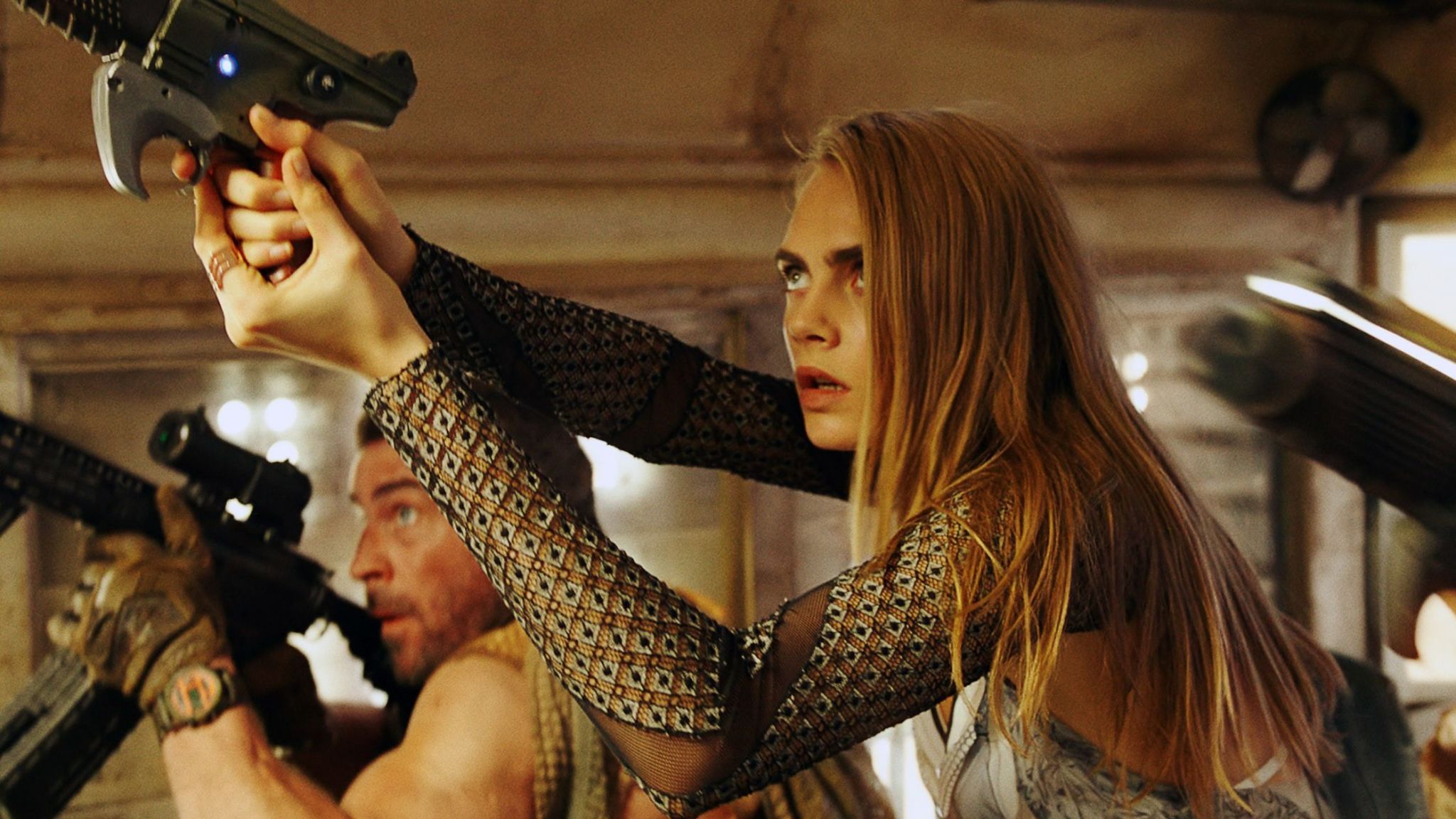
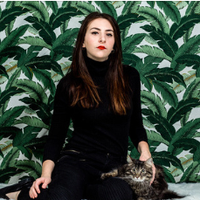
There are times when Valerian and the City of a Thousand Planets—the latest sci-fi ejaculate from The Fifth Element's Luc Besson—feels more like a video game than a movie. We follow military officer Valerian and his partner Laureline from CGI set-piece to CGI set-piece as they engage in a top-secret mission to retrieve a stolen artifact and investigate the mysterious radioactive zone in the center of a massive space station. Because sure! It doesn't help that the dialogue is cut-scene quality at best, and that the two lead actors—Dane DeHaan and Cara Delevingne—share similar child-like attractive/symmetrical faces that could have easily been artificially rendered.
This is not to say that Valerian and the City of a Thousand Planets is bad. I mean, it isn't good. But I can imagine it becoming something of a cult-classic, celebrated for its expansive world, campy acting, and spectacular CGI. The opening sequence—depicting the evolution of the space station, set to David Bowie's "Space Oddity"—is perhaps one of the best first minutes of storytelling in a film since Up. Unfortunately, the movie that followed is a series of clichés and lazy storytelling, with dialogue that ranges from unintentionally hilarious to "like a movie they'd play on those screens while you're waiting in line for a Disney ride in Tomorrowland."
Dane DeHaan and Cara Delevigne have so little chemistry, it somehow makes me want to have sex with them less.
This is like a magic trick. These are two incredibly attractive people, people who by all accounts are engaging and sexually active, and yet they manage to come across as co-workers in an accounting firm run entirely by sexless androids.
When we meet Valerian and Laureline, they are ostensibly doing what some humans might call "flirting" while on a virtual reality beach. Valerian continually propositions his partner and Laureline rejects him because he's a "player." They seem to be pushing a narrative in which Laureline is the straight-laced, follow-the-rules old-school romantic and Valerian is the renegade space-cowboy. And yet, in the climax of the film, Valerian delivers the following line with a straight face: "I'm a soldier. I follow the rules." The audience of the screening I attended burst out into snickers. Not only was it the lamest line ever delivered, but it was also totally counter to everything they'd been trying to get us to believe about our protagonist.
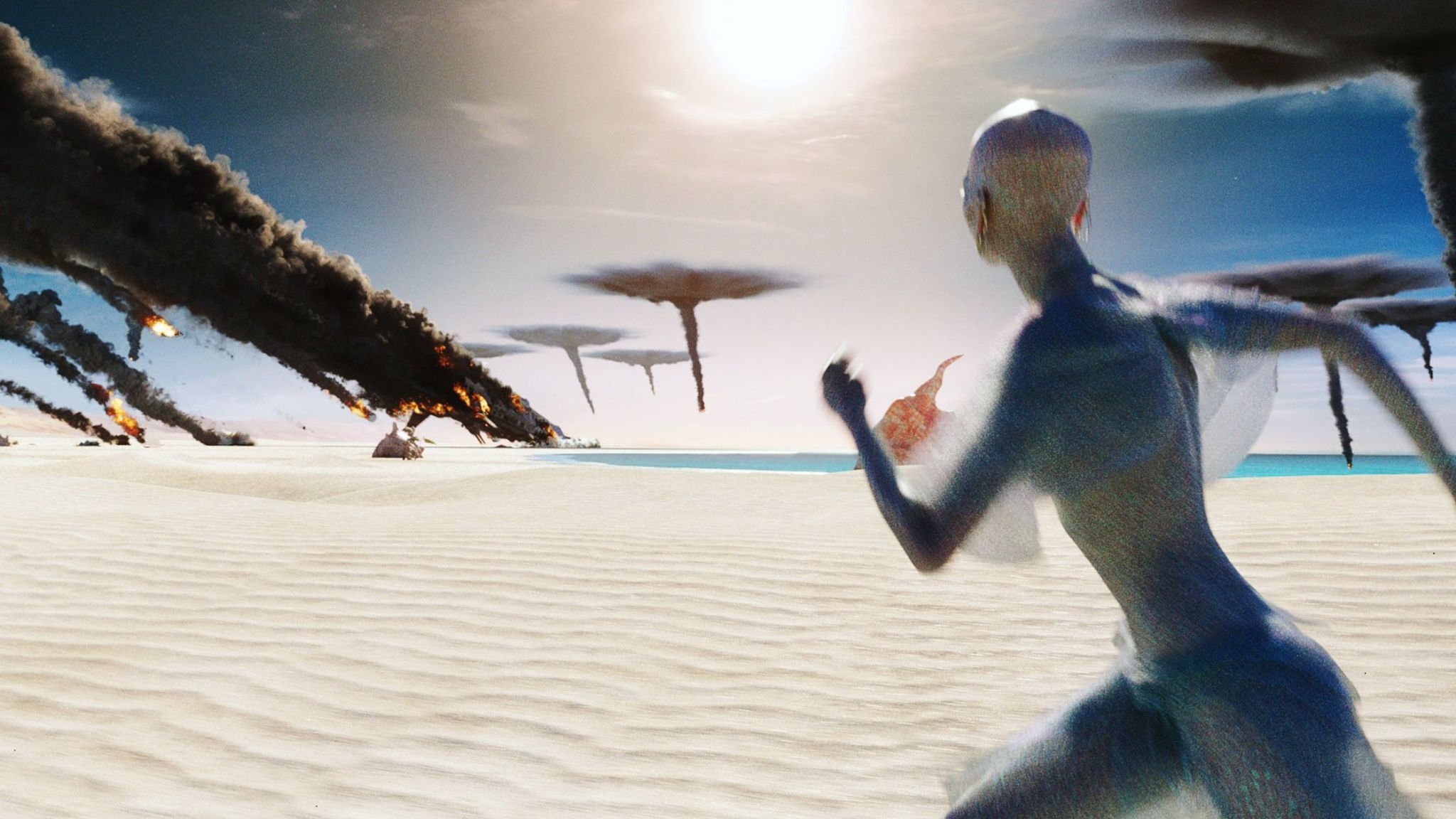
Laureline wears two different bikinis for her first two scenes. Because why stop at one? Meanwhile, the blue alien princess appears only in a tiny shrug that threatens to expose her underboob every time she lifts her arms (which she does often); and, because Rihanna plays a sexy stripper named Bubble, she spends her six minutes on screen in several sexy stripper outfits.
"He ripped my dress!" Laureline huffs after completing a top secret mission and escaping from the grasps of an enemy dragon beast. Later in the film, while examining top-secret cargo that's capable of duplicating any material it consumes, Laureline smiles down as it spits out globs of silver: "I need to take you shopping." Rihanna also gets in on the cliché bon mot game: she plays a shapeshifter who transforms into an ugly alien creature to help Valerian, and quips "I need a manicure" when she sees her alien hands. :|
Stay In The Know
Get exclusive access to fashion and beauty trends, hot-off-the-press celebrity news, and more.
Despite certainly being the best actor there, Rihanna's character, sex-worker/shapeshifter Bubble, dies randomly and meaninglessly—but not before spending her last breath teaching our white male protagonist how to love. The dead sex worker trope is incredibly annoying, and so is the sex-worker-with-a-heart-of-gold-who's-only-there-to-help-the-hero-learn-something trope. Just bad all around.
MORE FROM DANA SCHWARTZ
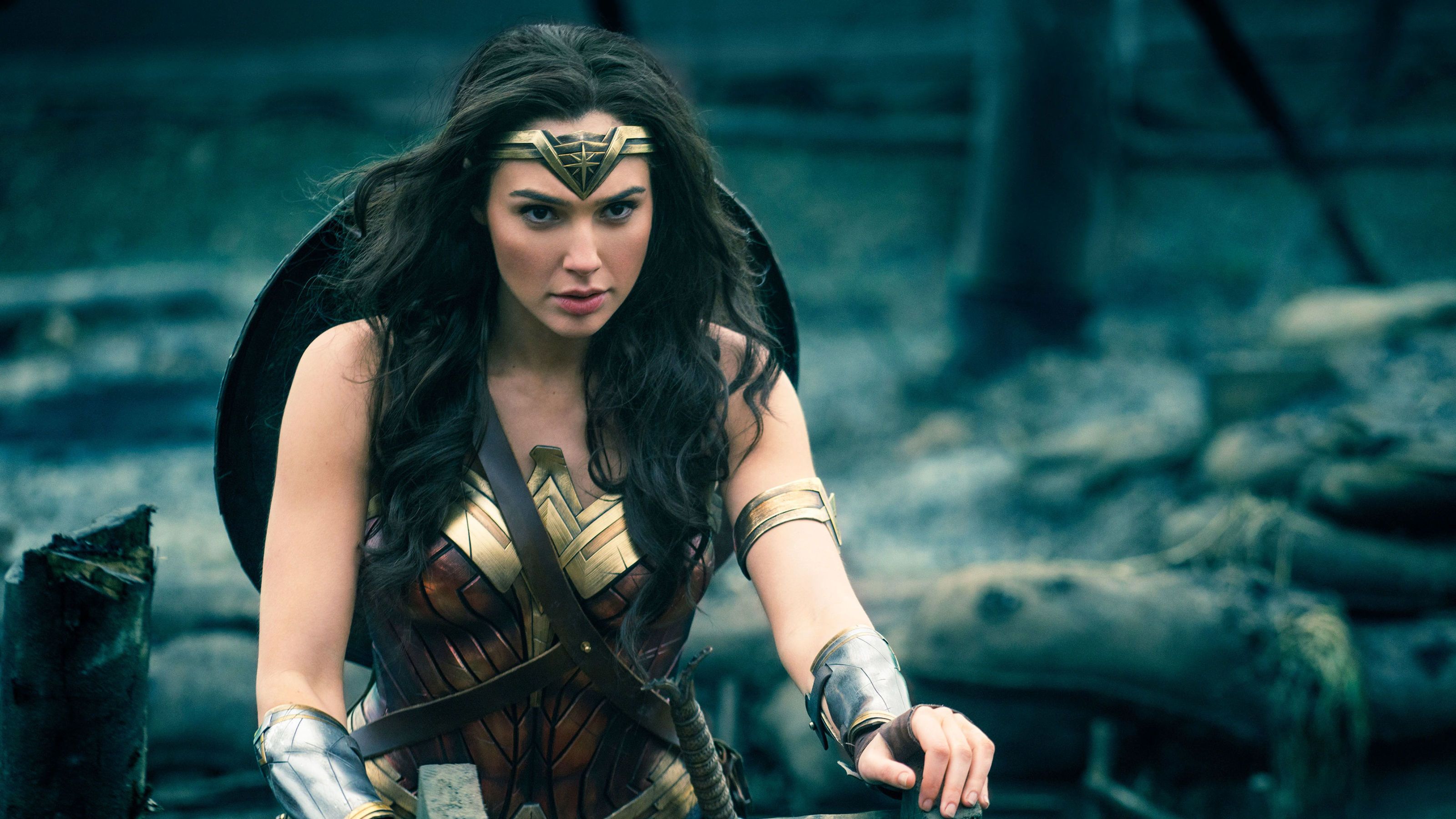
Wonder Woman's Greatest Power: Proving That Female Superheroes Can Be Feminine, Too
MORE FROM DANA SCHWARTZ
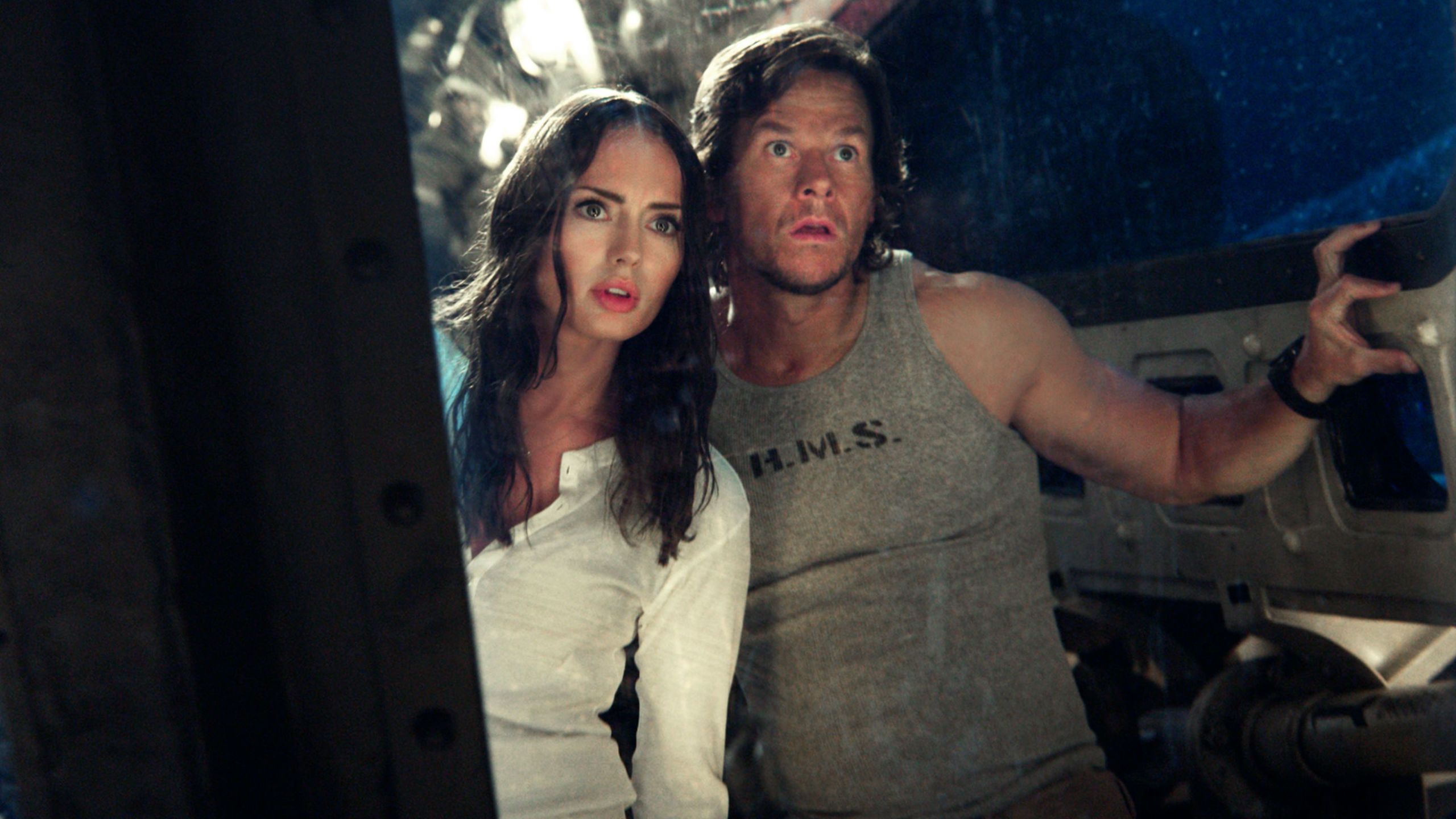
There Has Never Been a Worse Movie Than 'Transformers: The Last Knight'
MORE FROM DANA SCHWARTZ
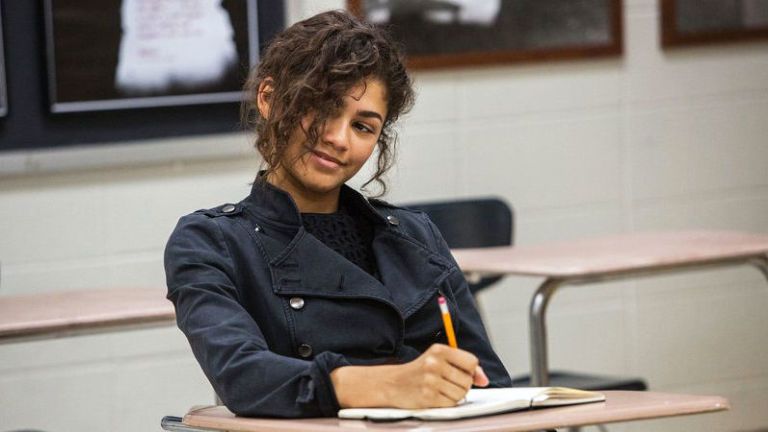
'Spider-Man: Homecoming' Is a Wonderfully Written Movie with Woefully Written Women
They're portrayed as "primitive," but much more wholesome than humans—living in a beach paradise and connected to the earth, with no sophisticated technology or industry. Hi, ambiguous racism! Also, in case you were still feeling White Guilt, the blue tribal creatures say multiple times that they forgive us. We're forgiven!
They are the same movie. Though, honestly I liked this better than Avatar, probably because it's shorter. But if we're talking ancient, mysterious water-associated lanky glowing blue creatures, honestly I'd rather just watch Atlantis: The Lost Empire.
Because apparently she needs to be rescued by our strong, brave male hero while she's a damsel in distress forced to wear a wedding dress and offer food to a grotesque foreign alien emperor. "But Dana!" the men on my Twitter are already frantically typing, "Laureline had to rescue Valerian before, from his plane crash!" First of all, no. Laureline did not have to rescue Valerian—she had to find Valerian because he, the brave hero, went off in pursuit without her. And she "rescues" him from a manly plane crash. He is never a captive, or a slave, or in any position that emasculates or otherwise indicates any possible position of submission.
He is Han in carbonite; she is Leia in a gold bikini.
Follow Marie Claire on Facebook for the latest celeb news, beauty tips, fascinating reads, livestream video, and more.
Dana Schwartz is the author of three books and the host and creator of the history podcast NOBLE BLOOD. As a journalist, she’s written for Entertainment Weekly, GQ, Vanity Fair, The Washington Post, Marie Claire, and more. She currently works as a TV writer based in Los Angeles.
-
 Princess Anne's Unexpected Suggestion About Mike Tindall's Nose
Princess Anne's Unexpected Suggestion About Mike Tindall's Nose"Princess Anne asked me if I'd have the surgery."
By Amy Mackelden Published
-
 Queen Elizabeth's "Disapproving" Royal Wedding Comment
Queen Elizabeth's "Disapproving" Royal Wedding CommentShe reportedly had lots of nice things to say, too.
By Amy Mackelden Published
-
 Palace Employees "Tried" to Get King Charles to "Slow Down"
Palace Employees "Tried" to Get King Charles to "Slow Down""Now he wants to do more and more and more. That's the problem."
By Amy Mackelden Published
-
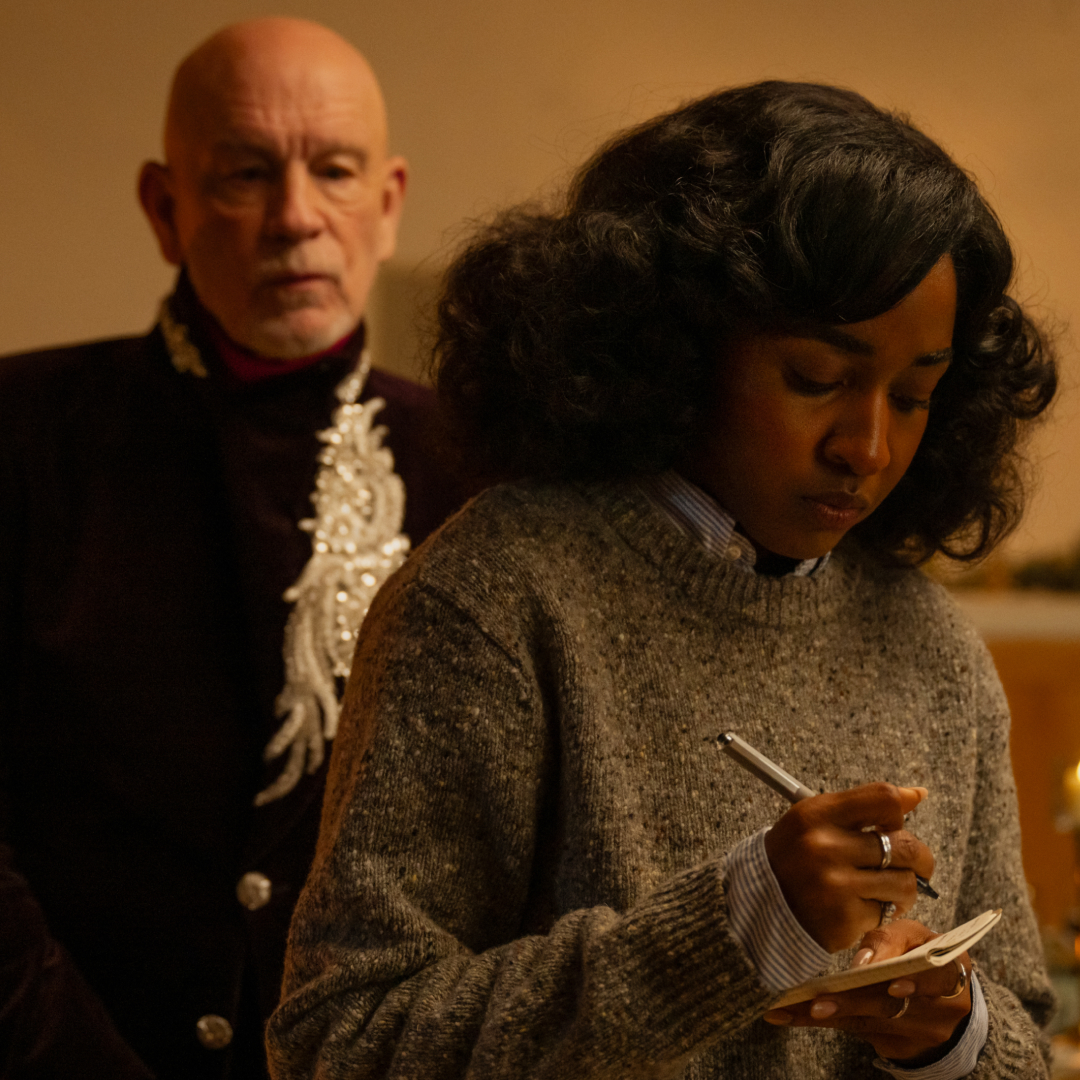 In 'Opus,' Cult Leaders and Pop Stars Are One in the Same
In 'Opus,' Cult Leaders and Pop Stars Are One in the SameThe A24 film's costume and production designers open up about crafting fictional pop icon Moretti’s style and mysterious estate.
By Sadie Bell Published
-
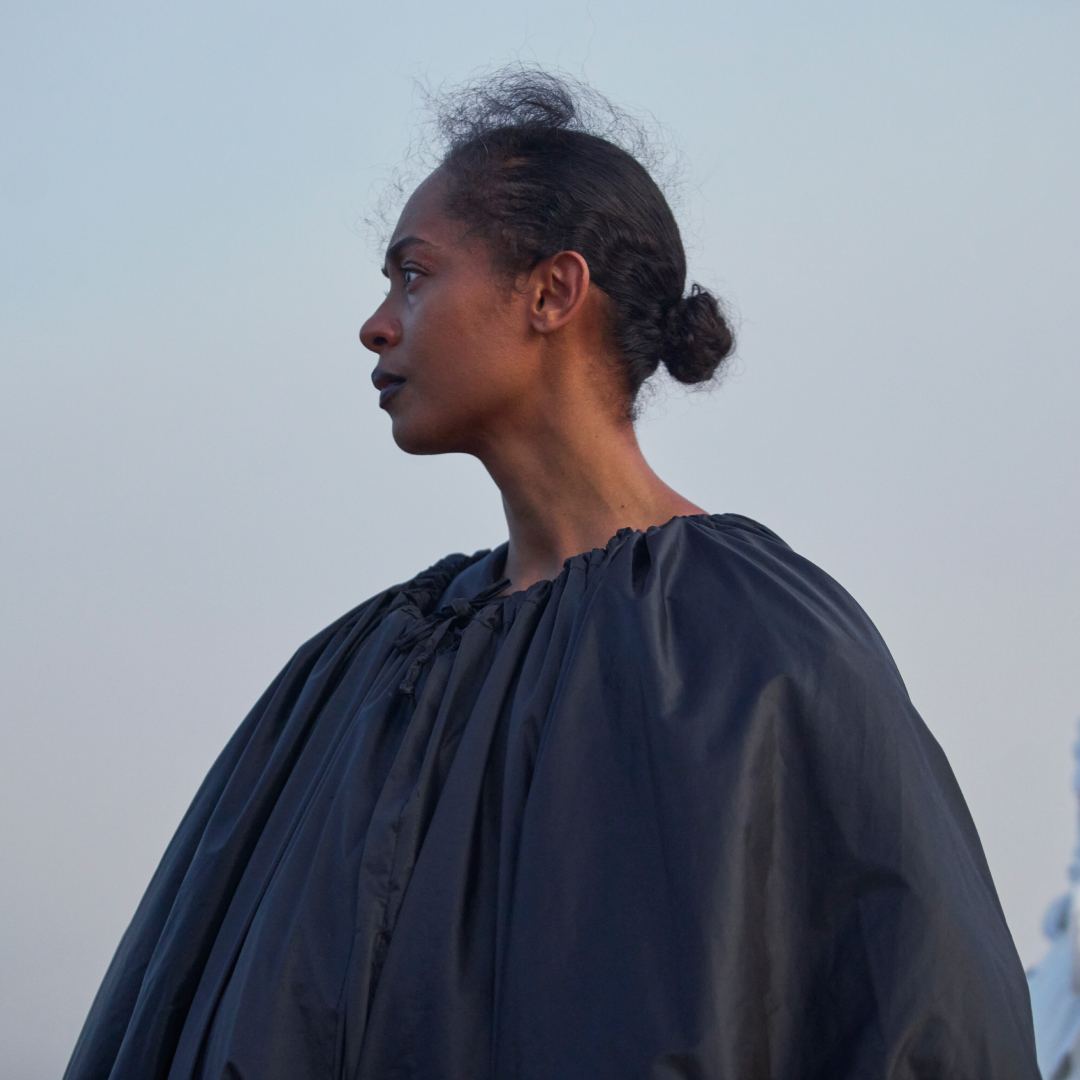 'On Becoming a Guinea Fowl' Is a Revolutionary Call to Speak Up Against Female Abuse
'On Becoming a Guinea Fowl' Is a Revolutionary Call to Speak Up Against Female AbuseAfter showing how a culture of silence around abuse can devastate entire generations, the arresting A24 film holds a mirror up to the audience and asks, \201cWhat happens if we scream?\201d
By Quinci LeGardye Published
-
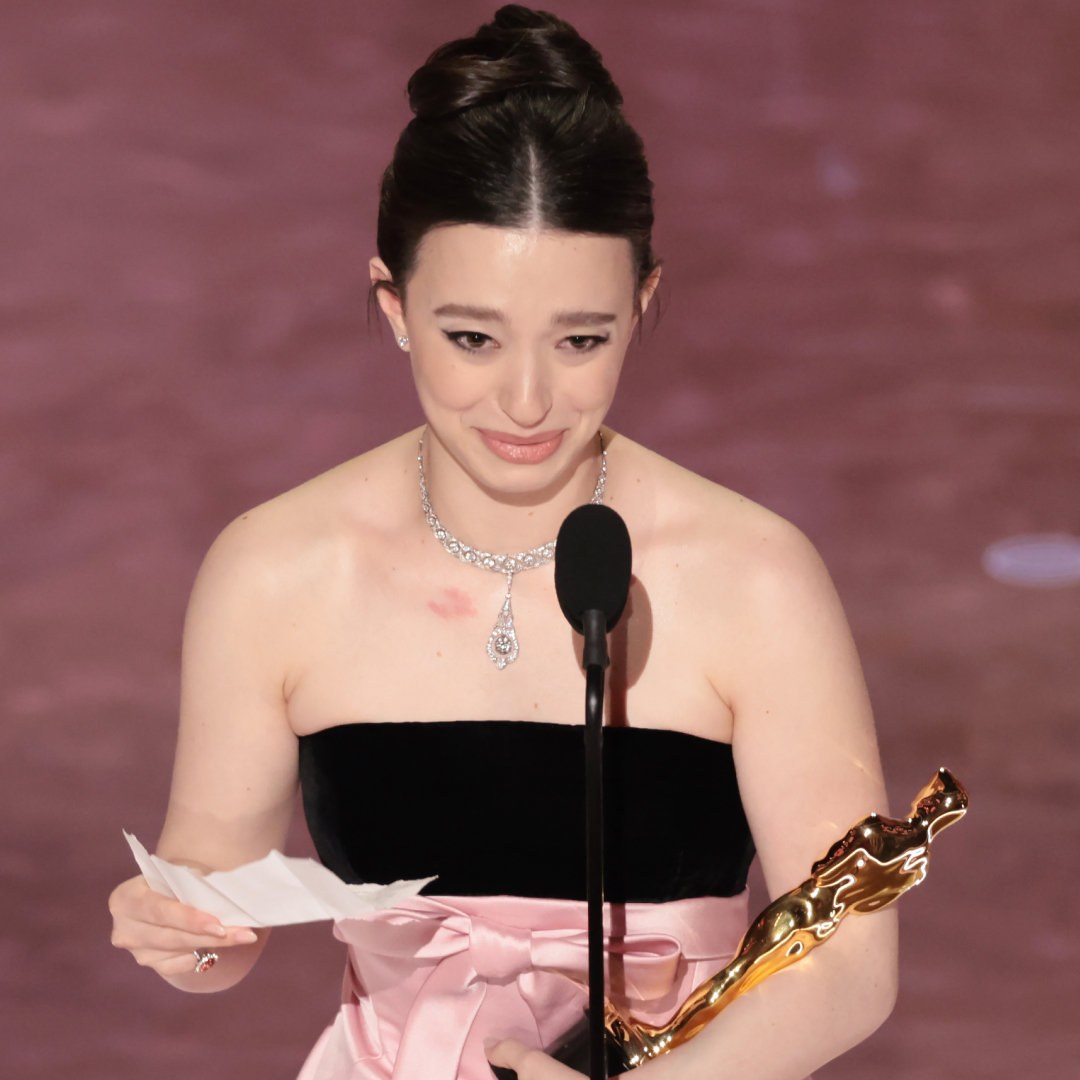 'Anora' Star Mikey Madison Takes Home the Best Actress Award at the 2025 Oscars in a Surprise Win
'Anora' Star Mikey Madison Takes Home the Best Actress Award at the 2025 Oscars in a Surprise Win"I will continue to support and be an ally."
By Quinci LeGardye Published
-
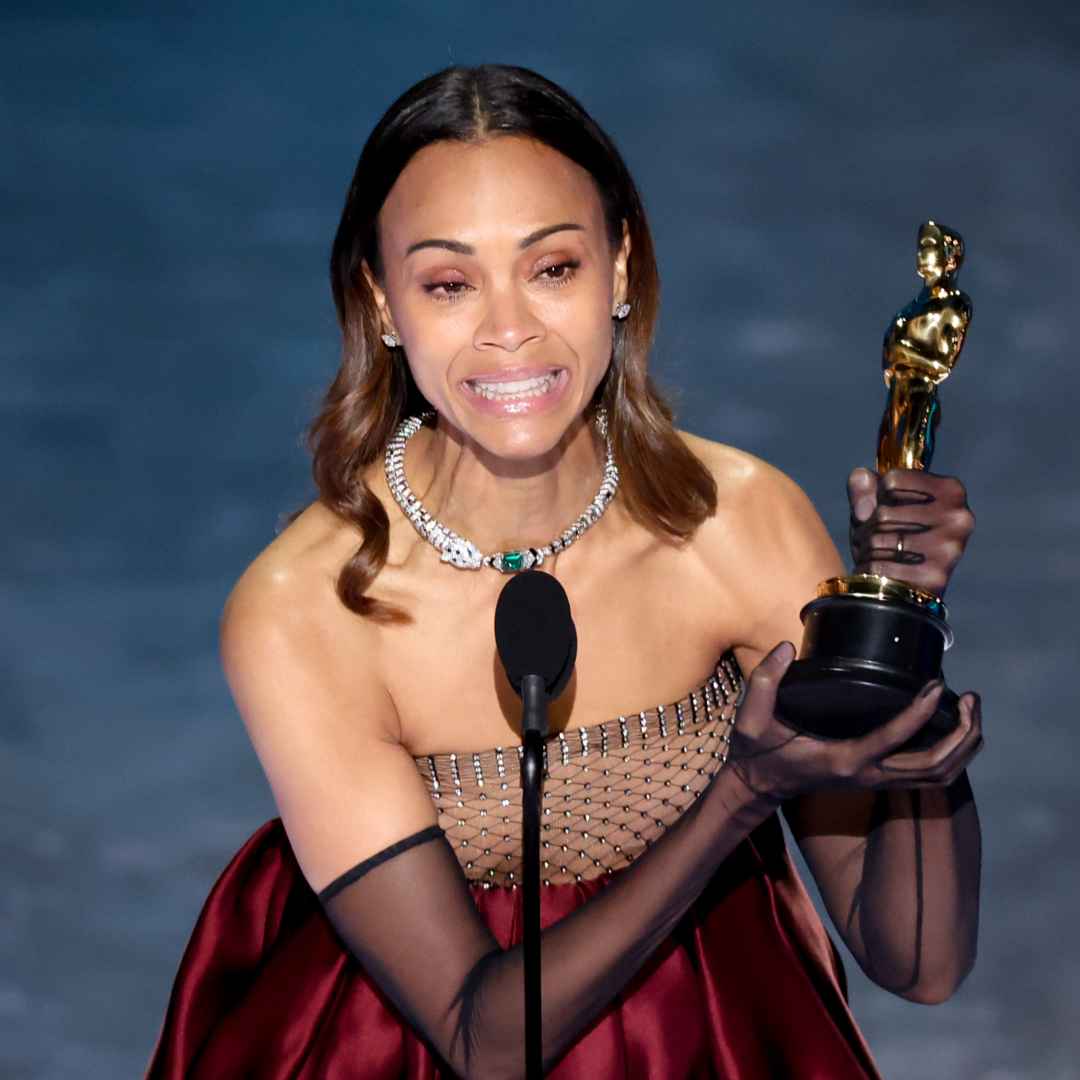 Zoe Saldaña Becomes the First American of Dominican Origin to Win an Oscar
Zoe Saldaña Becomes the First American of Dominican Origin to Win an Oscar"I am the first American of Dominican origin to accept an Academy Award and I know I will not be the last."
By Quinci LeGardye Published
-
 LISA, Doja Cat, and Raye Perform a Glamorous 'James Bond' Tribute at the 2025 Oscars
LISA, Doja Cat, and Raye Perform a Glamorous 'James Bond' Tribute at the 2025 OscarsThe Academy Awards are for the pop girls, actually.
By Quinci LeGardye Published
-
 Ariana Grande and Cynthia Erivo Open the 2025 Oscars With a Showstopping 'Wicked' Performance
Ariana Grande and Cynthia Erivo Open the 2025 Oscars With a Showstopping 'Wicked' PerformanceThe awards show began with a medley of songs inspired by the Best Picture-nominated film and adaptations of 'The Wizard of Oz.'
By Quinci LeGardye Published
-
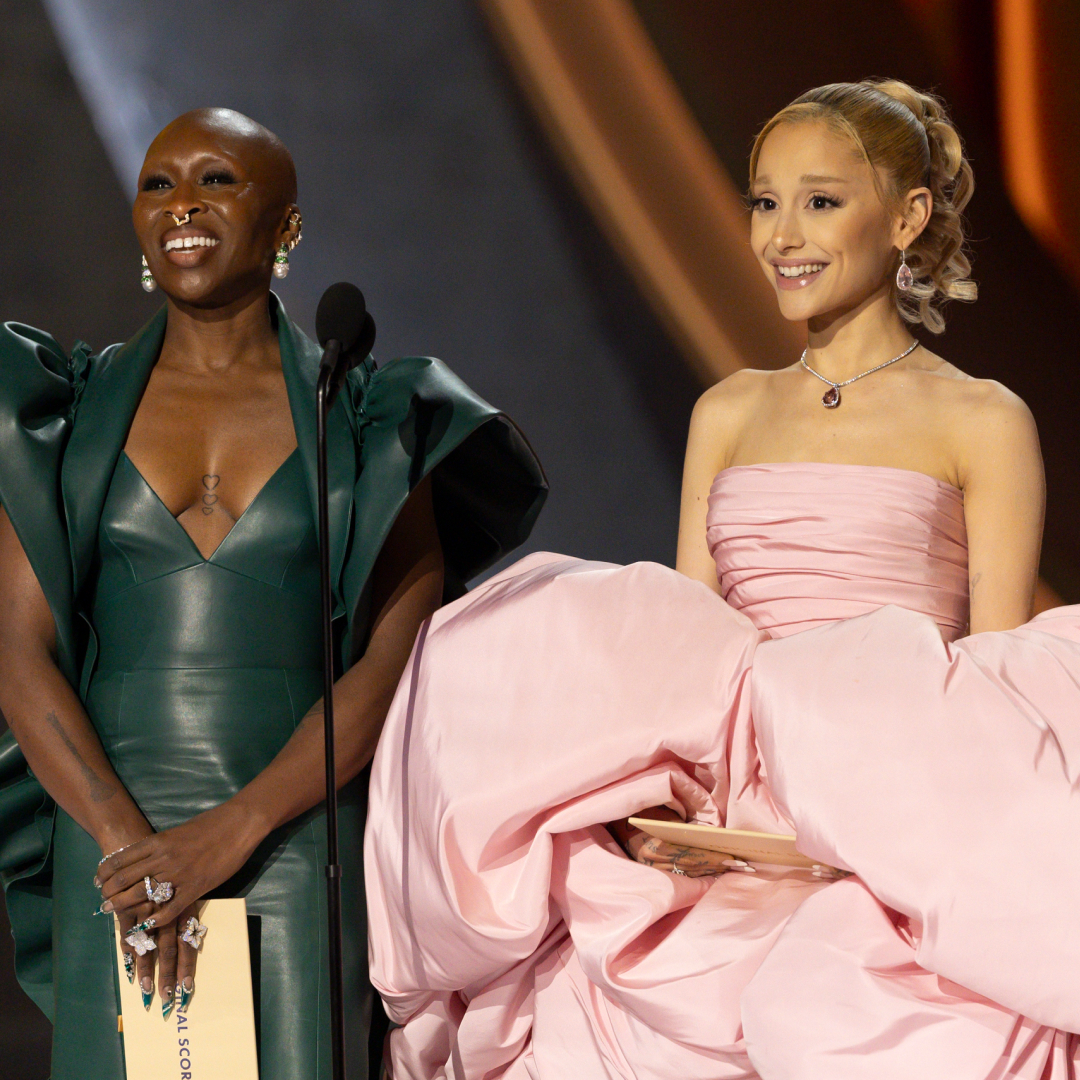 Everything to Know About the 2025 Oscars, From How to Watch to the Nominations
Everything to Know About the 2025 Oscars, From How to Watch to the NominationsIt's bound to be an unpredictable awards show.
By Quinci LeGardye Last updated
-
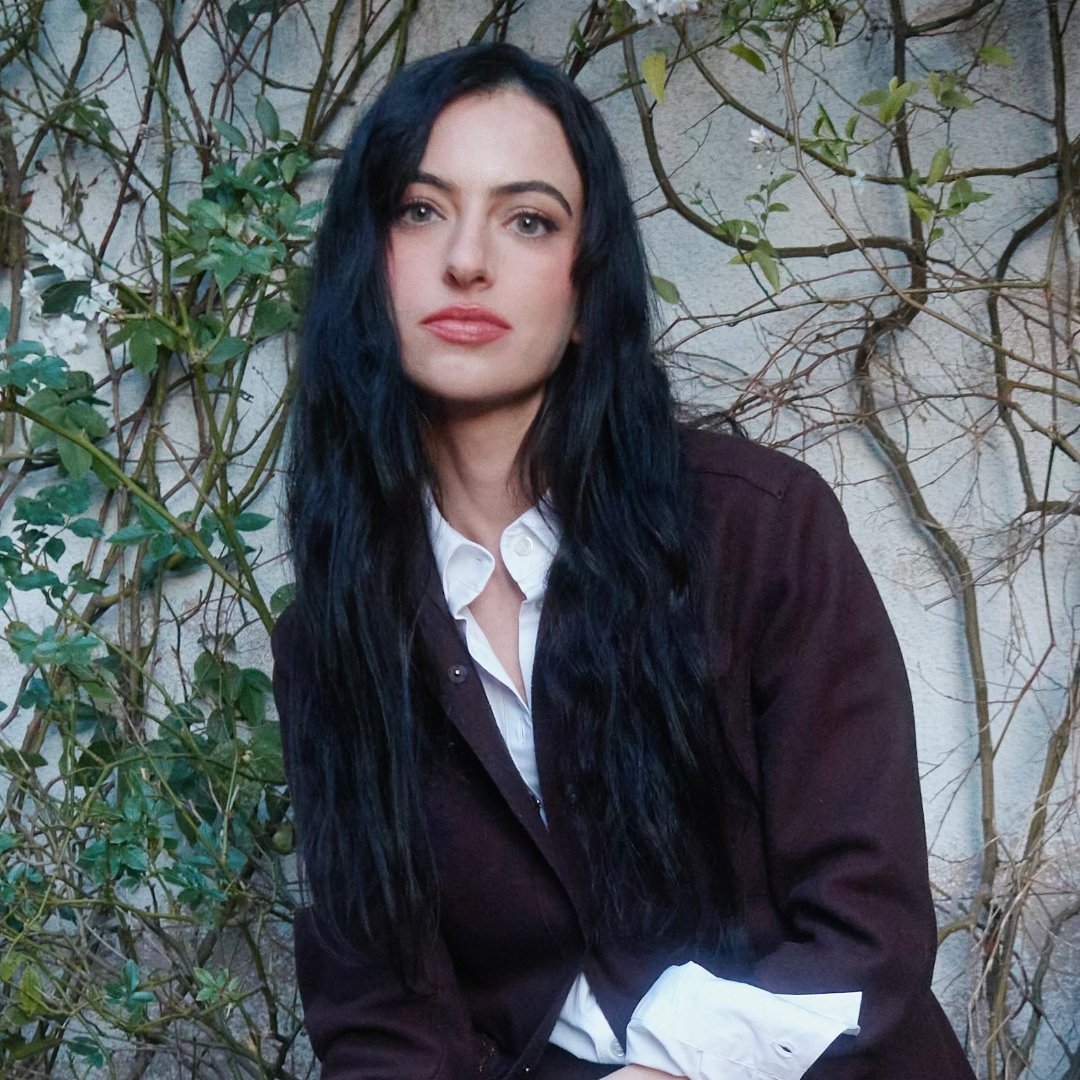 Cazzie David Spent Five Years Fighting to Make an "Anti-Rom-Com" About Emotional Abuse
Cazzie David Spent Five Years Fighting to Make an "Anti-Rom-Com" About Emotional AbuseThe writer/actress opens up about how she found catharsis after a breakup by making 'I Love You Forever.'
By Sadie Bell Published